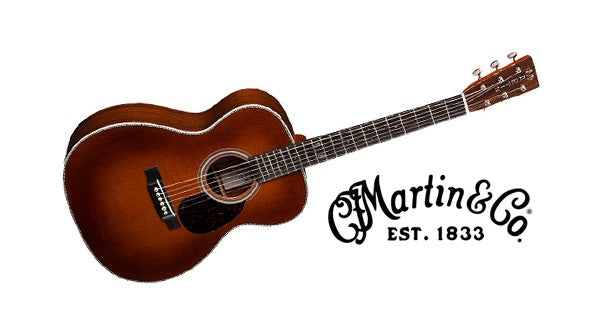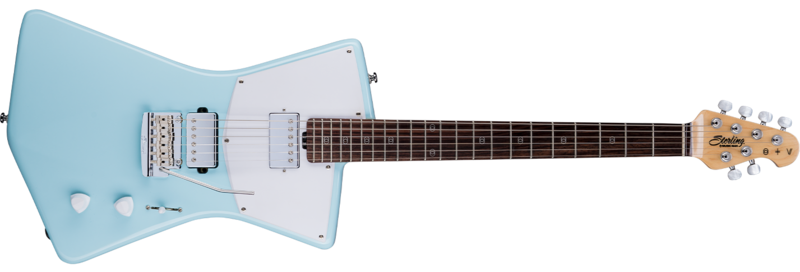Your Cart is Empty
7 Ways Learning to Play a Musical Instrument Boosts Brain Power
February 13, 2018 4 min read

Learning to Play a Musical Instrument Ups Brain Power
Learning to play a musical instrument gives us more than just the joy of music. Click here to learn how it can also boost our brain power in these 7 ways!
Great coordination, timing, and rhythm are some of the benefits of learning to play a musical instrument.
It provides a great outlet for stress and artistic expression, too. Of course, it can also come with the added bonus of street cred. But did you know that there are lots more benefits for your brain?
In fact, musical training not only has powerful brain-boosting abilities but can even change the structure of the brain. Want to increase your brain power? Music could be the answer!
In this article, we'll tell you why.
How the Brain Benefits from Learning to Play a Musical Instrument
We're not saying it will make you a genius, but it can definitely have some surprising effects.
1. Faster Reaction Time
Studies show that learning to play an instrument makes neural response and reaction time faster.
This is partly because it increases pathways between the left and right sides of the brain.
Musicians have shown increased levels of activity in the brain's corpus callosum, which is the bridge between the brain's two hemispheres. As a result, messages can pass through the brain faster and through more diverse routes.
Whether it's through responding a question, or reacting to a physical threat, learning to play a musical instrument can help your brain carry out these tasks at lightning speed.
2. Improved Concentration and Attention Span
Musicians may have higher levels of mental alertness than other people.
By strengthening the brain's gray matter , learning to play a musical instrument also helps people to focus and concentrate for longer periods of time.
You can't become a good musician without investing hours and hours of concentration and focus into your instrument. It's no wonder that these skills spill over into other areas of life, too.
3. Protects Against Cognitive Impairment
The benefits of learning to play a musical instrument don't only apply to children and young adults. They continue to develop in elderly people, too.
There is increasing evidence to show that playing a musical instrument protects the brain from cognitive impairment. This means that musicians are less likely to develop neurodegenerative disorders such as dementia or Alzheimer's when they reach their senior years.
By investing time and effort learning an instrument in childhood and adult life, you're also investing in your brain's plasticity in later life, too. The idea of losing your memory as you get older is a scary one, so it's good to know that playing music can keep it sharp.
Musical instruments have even been used in the rehabilitation of stroke patients , as it helps them to regain motor skills, speed, and precision.
4. Improved Multisensory Processing Skills
Of course, musicians need to have excellent coordination. Depending on which instrument they're playing, they constantly have to carry out different tasks with different parts of the body at the same time, all while keeping timing and rhythm.
When you play music, you're forced to process multiple senses at once. This means that you're consistently practicing your multisensory skills. It's a challenge.
It should come as no surprise that musicians who have undergone years of training are more adept at differentiating between different senses. On top of that, they're able to do it all with superior focus.
5. Better Long-Term Memory
Musicians have been shown to have an advantage when it comes to long-term memory. When compared with people who had no musical training whatsoever, they performed better in tests which required them to retain and recall verbal and pictorial information.
The tests showed that those with at least 15 years of musical training were able to create, store and retrieve memories more effectively.
6. Better Learning and Problem Solving Skills
Musical training allows you to solve problems more effectively and creatively.
This is because it exercises the cognitive processes that our brains use to process information quickly, retain it, and use it to solve problems. It also allows us to regulate our behavior to adjust to fluctuating demand on the brain, therefore making better choices.
This could lead to better academic performance and even a higher IQ. That's one of the reasons why parents are urged to take their children to music lessons.
In some schools, musical training has been used to offset gaps in academic achievement for disadvantaged children.
Schools in impoverished areas of Chicago and Los Angeles began enrolling students in music programs in 2014. Their learning abilities showed significant improvement, and as a result, they were better-equipped to tackle academic problems and performed better in school.
Specifically, music has been shown to improve reading skills. This is because music and reading use the same cognitive and neural mechanisms. Reading music helps, too.
7. Higher Executive Function
When playing an instrument, a musician has to analyze both the cognitive and emotional aspects of the music simultaneously. This improves the brain's executive function.
Executive function covers a group of critical tasks, including planning, processing and retaining information, controlling behavior, attention to detail and problem-solving. Musical training strengthens the brain's ability to handle these tasks in both children and adults.
Different tasks use certain corresponding areas of the brain. However, playing music requires the use of almost all of them in unison. Effectively, playing an instrument gives your brain the equivalent of a full body workout.
Visual, motor and auditory centers are all required to work at the same time. Those brain functions are strengthened, and can then be used to carry out other activities in life.
This means that by learning to play an instrument, you're also increasing your ability to create strategies, control impulses, reflect, and even achieve goals.
Get Practicing
Armed with this knowledge, music enthusiasts now have a new excuse to spend even more time playing their instruments. Not only are you practicing your music skills, you're also boosting your brain power while you're at it!
To give your brain an extra challenge, you could even learn to play with your non-dominant hand. If you're used to playing right-handed guitars, try playing with your left for a change.
To help you out, we've got a range of left-handed guitars for sale.
Leave a comment
Comments will be approved before showing up.
Also in Adirondack Guitar News and Blog
Browse Our Store
Recent Articles
- Left Handed Guitarists Who Learned to Play Right Handed July 13, 2021
- The History and Importance of the Martin 28 Style July 13, 2021
- Adirondack Guitar Profiles: St. Vincent July 13, 2021
- Adirondack Guitar Profiles: John Petrucci May 05, 2021
- How to Turn Your Music Skills into a Career March 30, 2021



